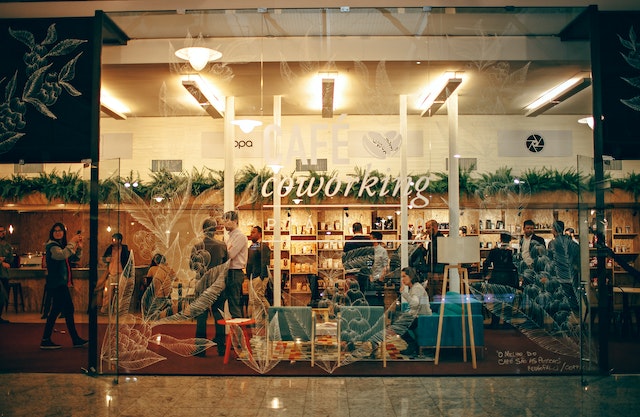The Impact of Proptech on Commercial Real Estate
 The adoption of new and exciting technologies has accelerated at a previously unforeseen pace in recent years, with the impact of the rapid changes that ensued now being felt across a number of industries. In the case of the real estate industry, the proliferation of proptech (property technology) has proven to be a significant factor changing businesses around the globe. In this article, we’ll take a deep dive into proptech and assess both its current and future impact on the commercial real estate market. It should also be noted that proptech encompasses both commercial and residential real estate technology, however, for the purposes of brevity we will only be exploring the commercial proptech sector.
The adoption of new and exciting technologies has accelerated at a previously unforeseen pace in recent years, with the impact of the rapid changes that ensued now being felt across a number of industries. In the case of the real estate industry, the proliferation of proptech (property technology) has proven to be a significant factor changing businesses around the globe. In this article, we’ll take a deep dive into proptech and assess both its current and future impact on the commercial real estate market. It should also be noted that proptech encompasses both commercial and residential real estate technology, however, for the purposes of brevity we will only be exploring the commercial proptech sector.
Contents
- 1 What is Proptech?
- 2 Recent Proptech Market Insights
- 3 Proptech and Office Space
- 4 How Proptech is Changing Real Estate Through Innovation
- 5 The Role of Proptech in the Coworking & Flexible Real Estate Industry
- 6 How is Proptech Helping Commercial Real Estate Professionals?
- 7 The Future of Proptech in the Commercial Real Estate Market
What is Proptech?
Proptech, also known as retech (real estate tech), essentially relates to the use of data and technology to help individuals and businesses manage, buy, sell, lease, and research real estate. The concept is not new, since the real estate sector has been using tech software for a number of years to store data, arrange virtual viewings, and help connect buyers and sellers. However, proptech capabilities have massively increased in recent years due to the development of newer and more refined technologies, such as artificial intelligence, Big Data, blockchain, cloud computing, and the Internet of Things.
Recently, we’ve seen unprecedented acceleration in the proptech field, largely fueled by new consumer expectations and the rapidly changing digital landscape. Moving into 2023, lingering uncertainty and persistent market shifts are tipped to continue spurring proptech’s advancement.
Extended periods of time working from home have shone a light on the digital shortcomings of businesses across the globe, with those in the commercial real estate industry included. Investment into real estate technology will help to curb these shortcomings, whilst also providing CRE businesses and real estate brokers with access to improved data and analytics, procedural automation, and a range of other innovations designed to bolster productivity.
Whilst many in the industry still struggle to agree on an outlook for the future of the CRE market, it’s clear that proptech and the innovations made in this space will serve as a vital component of the industry moving forward.

Recent Proptech Market Insights
Overall, the proptech industry is continuing to go from strength to strength. Indicative of this market’s capability was the bumper period where it grew by more than 1000% in just four years, in the United States alone. More real estate companies are considering using these technologies to optimize their business operations and remain competitive and current with best practice in RE.
The U.S. proptech industry has been going from strength to strength for a number of years now, with Forbes reporting a 1072% increase in the fast-tracking of property technology between 2015 and 2019. More recent predictions, outlined by Future Market Insights in mid-2022, indicate that the Proptech market size could be valued at $86.5bn USD by 2032. The market for the U.S. alone is expected to grow at a rate of 16% (CAGR) until then, while China and Japan are looking to experience even more rapid growth, at rates of 23.7% and 26.5% respectively.
Recent data indicates there were roughly 2240 Proptech companies in the U.S. at the start of 2022, with 49.84% of these companies working in the commercial sector. The U.S. is a global leader in Proptech uptake and innovation, owing in no small part to its immense CRE inventory. Recognized tech innovation hubs, like San Francisco and New York, serve as the headquarters for a lot of these companies, including a number of real estate tech startups. These tech companies typically specialize their offerings around a stage of the property lifecycle, with just over 20% focusing on technology to aid the management of commercial properties, followed by the roughly 13% that help owners sell. Other proptech firms provide financial services, virtual reality software for virtual tours, smart devices, and countless more innovations.

Proptech and Office Space
The pandemic revealed shortcomings in the adoption of digital capabilities. New health and safety regulations put pressure on many office-based businesses to digitize their operations for better compliance. Some were unable to meet new needs in their current premises, and started looking for office space that offered better tech capabilities. In turn, this fuelled demand for advanced-tech enabled offices.
Examples of proptech in practice within offices environments include…
- Occupancy sensors to control access to buildings, security systems, and layout optimization
- Smart building integration, allowing tenants and management to control temperature, lighting, and other aspects of the office experience from numerous devices
- Online booking systems for meeting or conference rooms
- Automation for tasks like payroll, onboarding, mail sorting, security (using biometric data), and more

How Proptech is Changing Real Estate Through Innovation
A wide range of proptech solutions have been created to address the needs of employees in the new world of work and harness the growing amount of data that we now generate on a daily basis.
For example, artificial intelligence applications have excellent data analytics capabilities, which have practical applications in real estate. This technology uses real-time insights and data for predictive purposes, and can help determine locations for optimal office investment, anticipate demand, or detect new patterns and preferences in office tenant usage behavior.
The Internet of Things can capture data about office buildings and spot inefficiencies in space and utilities. This has shown great potential to improve the sustainability profile of offices and make them more appealing to a wider range of tenants.
Smart building technology can also monitor heating and cooling systems and provide a wealth of data that can then be used to improve things like air quality and ventilation, something which has become increasingly important in recent years. Expect to see the trend towards smart technology continue to gain traction in the years ahead, as smart cities and the buildings within them look to iterate on existing systems to improve efficiency and streamline property management.

Proptech applications using virtual or augmented reality can also benefit office-based businesses who need to reconfigure their space to accommodate new workflows and constantly evolving requirements. Proptech solutions based on these technologies are able to create online workplace environments, and suggest layouts that align to changing business goals.
As previously alluded to, proptech can also be applied to facilities management. Numerous digital solutions currently allow more streamlined and efficient booking of meeting and conference rooms, limiting potential crowding. In addition, proptech software can enable contactless visitor registration and employee attendance tracking, allowing managers to determine who is in the building at any given moment.
Advancements in proptech also extend to physical spaces themselves. Having physical aspects of office buildings governed by Proptech has allowed for better atmosphere control, and promoted more comfortable and environmentally friendly office spaces. Intelligent glass, for instance, is finding great uptake for its ability to maximize natural light in offices, while reducing glare and modulating these parameters based on external climatic data. Finding optimal balances for these in-office atmospheric factors has been shown to improve work performance and heighten workspace functionality.

The Role of Proptech in the Coworking & Flexible Real Estate Industry
Proptech has been invaluable for enabling the growth of flexible offices and coworking spaces. This is especially true when it comes to the booking of hot desks, allowing managers to properly organize their workspaces and ensuring that these office solutions become viable alternatives to traditional office space.
Data-driven analytics provided by proptech apps have allowed for the optimized utilization of space – maximizing floor plan usage (while accommodating OHS requirements) and better managing foot traffic flow.
AI and machine learning’s integrations in proptech have also allowed businesses to analyze optimal workspace furniture and fit-out configurations. Design applications can provide a variety of options for layouts, based on the inclusion or removal of different physical elements, or for spaces geared towards different usages such as creative collaboration or break-out areas.
Internet of Things enabled smart real estate technologies and apps have shown their utility in successfully managing shared workspaces. Innovations like secure biometric office access, as well as smart cameras and payment applications have proven to make the sharing of office space a smoother process, enabling optimal utilization.

How is Proptech Helping Commercial Real Estate Professionals?
In a market where time is money, proptech is helping professionals in the commercial real estate industry save both by streamlining the leasing process and making it easier to connect with potential tenants. In addition, proptech is also helping to create more engaging and immersive marketing materials, giving properties a competitive edge in the market. Technological innovations in the space have also allowed commercial real estate agents to better field inquiries and prospect for potential listings, with data-driven analytics providing actionable insights and maximizing potential outreach to property owners. Generating new leads can be a particularly difficult aspect of the job for any commercial real estate agent, making it more vital than ever to leverage innovative digital methods to gain a competitive advantage. As the proptech industry continues to evolve, commercial real estate professionals will have access to an ever-growing range of powerful tools to help them succeed in today’s market. These tools will help them automate repetitive tasks, monitor real time alerts, connect with potential buyers, conduct virtual property tours, gain insight into valuable real estate markets, and better connect with commercial property managers.

The Future of Proptech in the Commercial Real Estate Market
Beyond all the innovations previously discussed, proptech can continue to serve as a true game changer for the future of the CRE market. One doesn’t have to look far to find strong examples of the continued possibilities for advancement in the space, with applications like Equiem hoisting the banner high. This Australian venture uses Proptech to increase the value and appeal of office buildings by turning them into flexible data-driven ecosystems that easily respond to their occupants’ needs, something highly-demanded in the current world of work.
We’ve also seen the growth of flexible and coworking space in the U.S. CRE market, despite being slowed by the pandemic. The proportion of these spaces in the U.S.’s total office inventory is expected to grow to 30% by 2030. As proptech has already shown its utility in helping to plan designs of these spaces and reconfigure existing space for flexible purposes, it’s clear that reliance on this technology will be required to drive innovation moving forward.
Proptech can help future-forward businesses embrace digital transformation and streamline core processes, from site planning to asset and facilities management. Looking ahead, we can expect this technology to become more mainstream as it continues to add undeniable value to commercial real estate.
Are you a business looking for flexible workspace in the United States? We list a wide range of serviced offices and coworking spaces in highly sought-after locations such as New York City, Los Angeles, Houston, Atlanta, Miami, Chicago, and Dallas. Alternatively, you can call us to have a discussion about your requirements on 972-913-2742.
Further Insights
15 In-Person Employee Recognition Ideas for the New World of Work
Mid-2022 Houston Commercial Real Estate Market Report
Coworking Space for Students on U.S. College Campuses
How the Decentralization of Cities Has Changed the U.S. Office Space Market
US Office Market Trends 2022 – Statistics, Challenges and Outlook
January 2022 – U.S. National Office Market Report
The Great Resignation or the Great Retention? How Employers Yield the Power Heading into 2022
5 Ways to Create a Great Office Culture